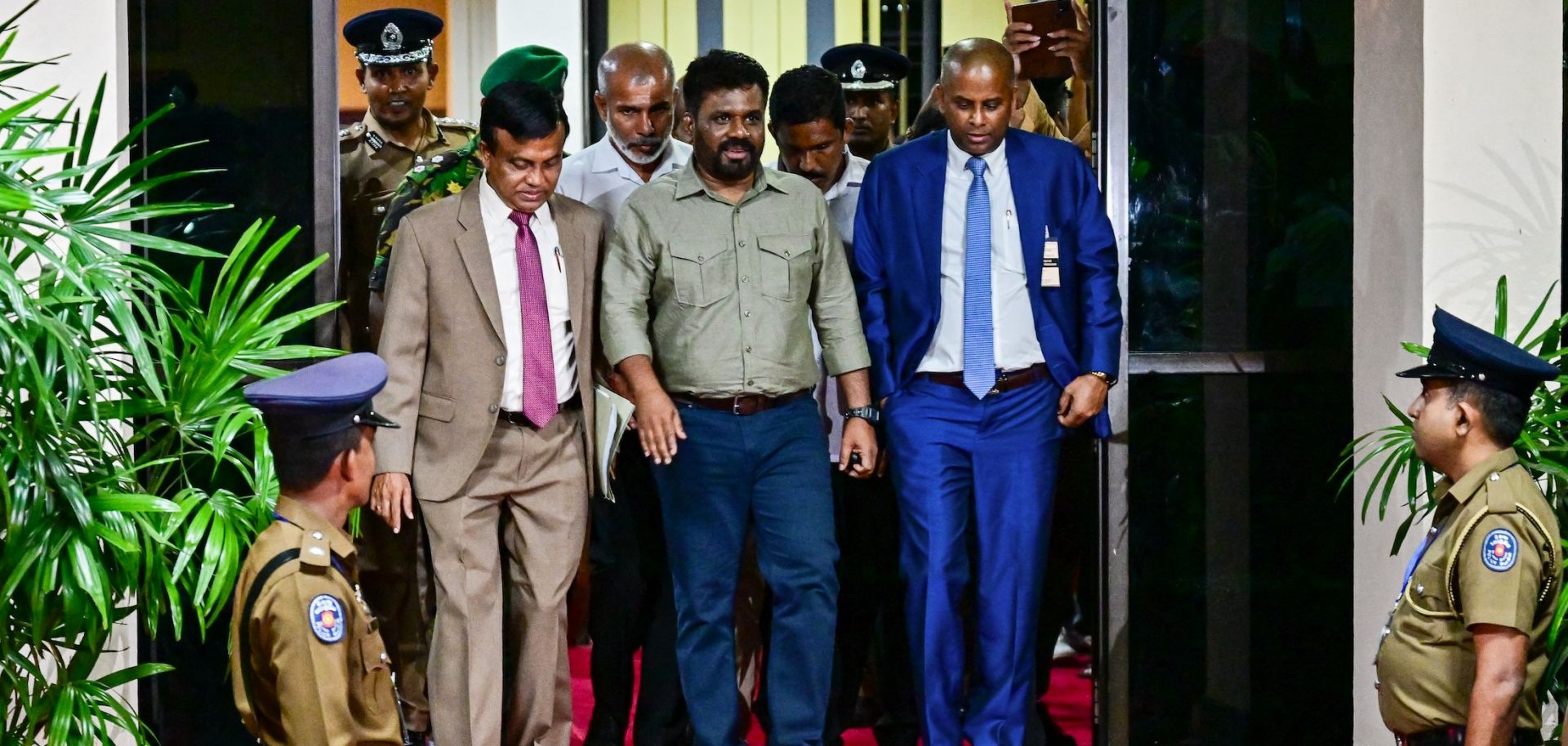Sri Lanka's new president will struggle to find a balance between his left-wing agenda and the country's IMF commitments against the backdrop of an opposition-controlled parliament, which increases the probability of an early legislative election that could reshape Sri Lanka's political landscape but also result in continued policy uncertainty. On Sept. 23, Anura Kumara Dissanayake was sworn in as Sri Lanka's new president after winning the country's Sept. 21 presidential election. Dissanayake leads the leftist National People's Power (NPP) alliance, which includes his Marxist party, the Janatha Vimukthi Peramuna (JVP). Dissanayake secured 42.31% of the vote in the second round of the presidential race, while his closest rival, opposition leader Sajith Premadasa, garnered 32.76%. Incumbent president Ranil Wickremesinghe came in third with 17%....

